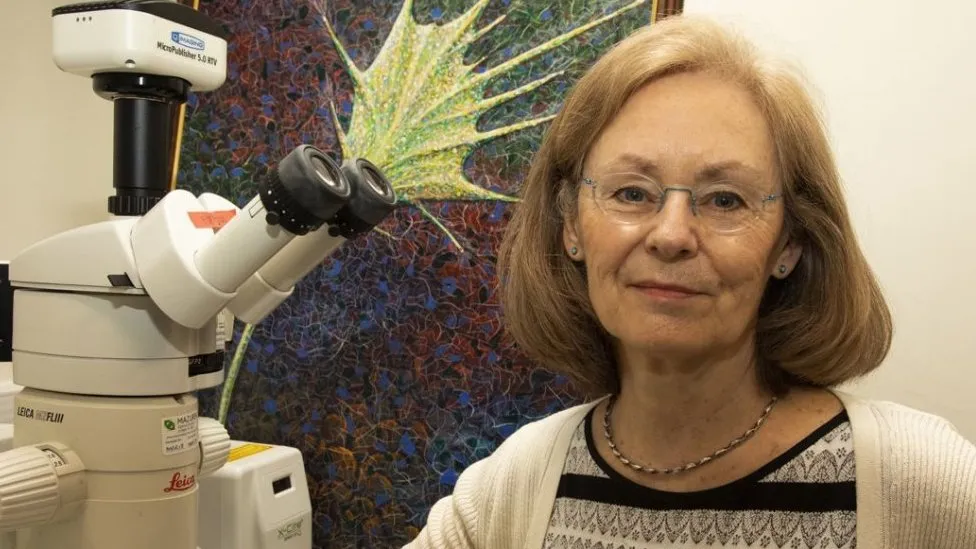Prof Christine Holt awarded the Brain Prize
2023 Lundbeck Foundation Brain Prize Press Release
Dr. Christine Holt's profile at the Lundbeck Foundation

Cambridge University
Dr. Christine Holt shares the Lundbeck Foundation 2023 Brain Prize with Dr. Erin Shuman at the Max Planck Institute and Dr. Michael Greenberg at Harvard Medical School. The prize winners all made major contributions to modern neurobiology, discoveries that may eventually lead to advances in therapies for neurodegenerative disease and neural repair.
Prof Christine Holt is a Developmental Neurobiologist at Cambridge University, UK. Dr. Holt is fascinated by how the brain grows at the earliest embryonic stages and how the brains’ neurons make the right connections. She used a number of different systems, especially Xenopus eye to study how the axons of light sensitive retinal ganglion cells find their way from the eye into the brain enabling vision.
From her early work from the 1980’s where she described in great detail the development of the retinal ganglionic cells in Xenopus to her latest work on axon guidance, Professor Holt has built an impressive body of work. In a highly original step-change in understanding axon growth, her work demonstrates that local protein synthesis and degradation are a required part of neuronal growth cone guidance.
Recently, she showed that local axonal protein synthesis is necessary for axon survival. This suggests mature axons require a continuous supply of locally synthesized proteins for maintenance. In the most remote cellular compartments of neurons, such as axons, growth cones and presynaptic terminals, the ability to make new proteins on-site and on-demand provides adaptability and resilience.
Prof Holt published over 130 papers in her career, ~95 using Xenopus as a neurobiology model. She has worked with numerous Xenopus researchers including Jenny Gallop, Shin-ichi Ohnuma, Michael Blower, Sarah MacFarland, Richard Harland, Sir John Gurdon, Enrique Amaya, Anna Philpott, Barbara Lom, Richard Anderson, Hosung Jung, Mike Zuber, Patrick Lemaire, Brian Key, Ali Brivanlou and of course her long-time collaborator and partner in life, Bill Harris.
The award ceremony is on the 6th of June in Copenhagen, with medals presented by the Crown Prince of Denmark.
2023 Brain Prize winners
Prof Erin Schuman's research found that proteins made locally in dendrites are required for synaptic plasticity. Dr. Erin Schuman identified in molecular detail the mRNA and ribosome population present in neuronal dendrites and axons. Her studies also developed of a range of new technologies, many of which have been adopted by other labs around the world.
Prof Michael Greenberg's research addresses the fascinating question of how nature, in the form of expression of genes, and nurture, in the form of the environment and our reaction to that environment, interact and cooperate for proper brain function. Work in his laboratory characterized signal transduction pathways linking the neuronal nucleus to calcium influx at distal synapses. Thus, uncovering an extensive network of neuronal activity-responsive cis-regulatory elements coordinating gene expression changes and demonstrated significant neuronal cell-type- and species-specific diversity in transcriptional responses. Greenberg’s work is illucidating potential new areas which could have massive therapeutic significance.
Last Updated: 2023-05-08